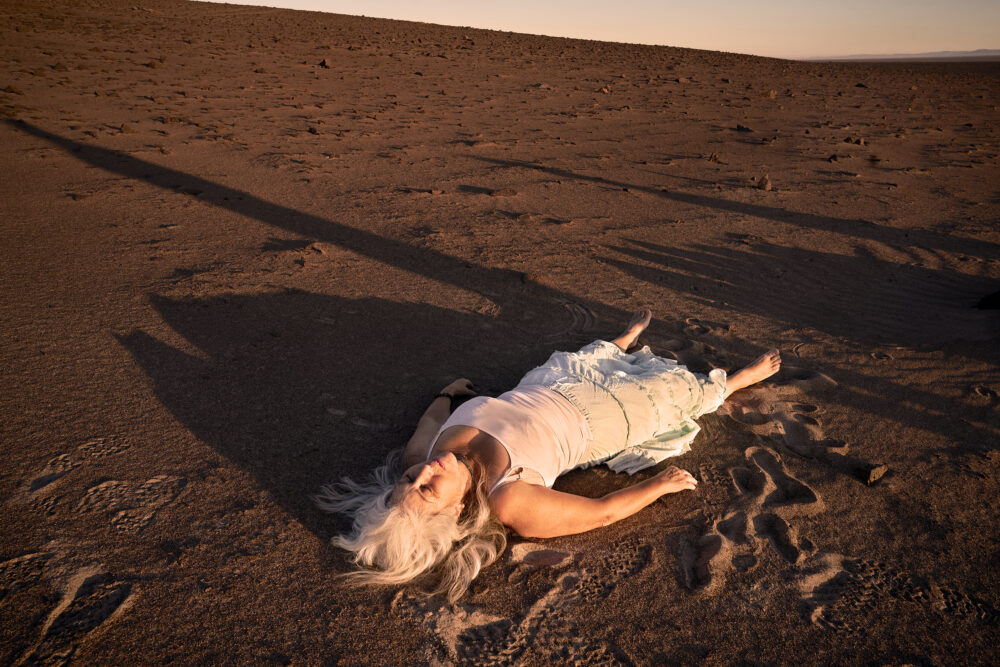
Maya Goded (1967- Mexico City). “Iquique, Chile,” 2022, digital print. Museum purchase with funds provided by Allen Blevins and Armando Aispuro, and Betsy Rosen and Liam Stokes.
Documenting the lives of women lost in the shadows
By Jen Sudul Edwards, PhD
For the past three years, the Mint has been building a significant portfolio of works by Mexico City-based photographers Graciela Iturbide and Maya Goded. Over the decades, the two photographers have created revealing, poignant, and powerful images that examine the intersection of contemporary life and centuries-long practices throughout North and South America.
The artists, who are a generation apart in age, both grew up in Mexico City and have worked in various places throughout the world. Their primary focus, however, has been indigenous communities stretching from Los Angeles to Chile. Over decades of exploring communities, whether urban or isolated, Iturbide and Goded have found women as the consistent force holding these fragmenting societies together.
The exhibition Women of Land and Smoke: Photographs by Graciela Iturbide and Maya Goded (Las Mujeres de Tierra y Humo: Las Fotografías de Graciela Iturbide y Maya Goded), opening November 23 at Mint Museum Randolph, includes over 50 photographs that present an overview of Iturbide and Goded’s careers that span the Americas.
The exhibition is primarily drawn from The Mint’s collection, and celebrates a recent gift from Allen Blevins and Armando Aispuro, and Betsy Rosen and Liam Stokes that allowed the museum to purchase significant portfolios by both photographers.
Maya Goded
Born in Mexico City in 1967 to political activists (her mother immigrated from New York City), Maya Goded has long sought out the unseen or actively ignored people in our spaces: prostitutes, the missing, laborers, healers. Goded’s photographs feature women whose essential roles are supporting and sustaining communities but are considered dispensable when it comes to their care and protection.
Over the last decade, Goded noticed that the healing practices women traditionally used on the sick in their communities were increasingly turned to the land on which they lived. Decades of strip mining, nuclear testing, and chemical dumping had poisoned the earth and water in many Central and South American countries Goded documented. As a result, the portfolio of images the Mint has collected includes many ways in which women’s bodies move through the world with the attempt to heal.
The photographs featured here are an overview of Goded’s work that will be included in Women of Land and Smoke.
Learn more about Graciela Iturbide and her portfolio in the next issue of Inspired.*
Jen Sudul Edwards, PhD, is chief curator and curator of Contemporary Art at The Mint Museum.
*This article originally appeared in the Fall 2024 issue of Inspired magazine, the Mint’s member magazine.